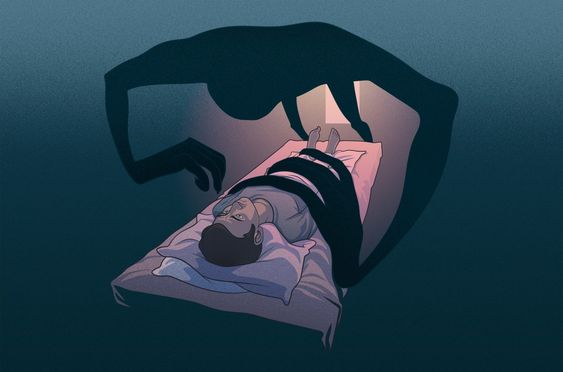Introduction
Sleep paralysis is a condition in which you are aware of your surroundings, but you are unable to move or speak. It can occur when you are falling asleep or waking up. It is often accompanied by hallucinations, which can be terrifying.

Sleep paralysis is not harmful, but it can be very frightening. It is relatively common, affecting about 8% of the population at some point in their lives. It is more common in people with certain sleep disorders, such as narcolepsy and sleep apnea.
What Causes Sleep Paralysis?
The exact cause of sleep paralysis is unknown, but it is thought to be caused by a disruption in the normal sleep cycle. During sleep, your body goes through different stages, including REM sleep. During REM sleep, your muscles are paralyzed to prevent you from acting out your dreams. Sleep paralysis is thought to occur when your brain wakes up from REM sleep, but your body remains paralyzed.
What are the Symptoms of Sleep Paralysis?
The main symptom of sleep paralysis is being unable to move or speak while you are awake. This can last for a few seconds or up to a few minutes. Other symptoms include:
- Feeling like you are suffocating
- Hallucinations, such as seeing or hearing things that are not there
- Feeling like someone is in the room with you
- Feeling like you are being held down
- Feeling intense fear or dread
How is Sleep Paralysis Prevented?
There is no guaranteed way to prevent sleep paralysis, but there are a few things that may help:
- Get enough sleep: Most adults need around 7-8 hours of sleep per night.
- Establish a regular sleep schedule: Try to go to bed and wake up at the same time every day, even on weekends.
- Create a relaxing bedtime routine: A hot bath, reading, or light stretches can help prepare your body for sleep.
- Avoid caffeine and alcohol before bed: These substances can interfere with your sleep.
- See a doctor if you have frequent sleep paralysis: There may be an underlying sleep disorder that needs to be treated.
Conclusion
Sleep paralysis can be a terrifying experience, but it is important to remember that it is not harmful. If you experience sleep paralysis, try to relax and remind yourself that it will pass. If you have frequent sleep paralysis, see your doctor to rule out any underlying sleep disorders.





